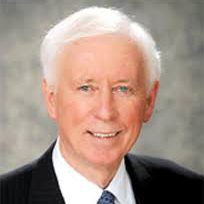WHO Geneva Monday
On this my second day in Geneva for the Sixty-sixth World Health Organization (WHO) World Health Assembly (WHA), work started when I joined members of the leadership of the World Health Professions Alliance (WHPA) for a press briefing with the World Health Editors Network (WHEN). The discussion with reporters focused on concerns of the medical community that will be the subject of the work of the WHA this week. These include in particular, among others, noncommunicable disease (NCDs)* and the social determinants of health, promotion of health throughout life, universal access to health care and sustainability of health care improvements.
The session was a productive two way conversation during which reporters were interested not only in being informed but also solicited input about how they can be more effective in communicating health related messages. A part of that discussion focused on the opportunities and challenges of social media. In a nutshell, social media provides the opportunity to preserve and expand the audience receiving information and the challenge of preserving the integrity of the message.
At a noon luncheon to which attendees at the WHA were invited, the WHPA announced launching of a statement on “Interprofessional Collaborative Practice”.
The statement addresses the fact that health service users around the world can experience duplication, gaps and discontinuity in the health system. Effective collaboration between different professions can prevent this and lead to improved access to services, more user involvement in decision-making, more responsive services, better use of resources, reduced incidence of disability and increased job satisfaction of health professionals.
The statement calls on governments to fund structures, which support interprofessional practice and shared learning health professionals need to work together and respect each other’s expertise.
It concludes with a commitment that The World Health Professions Alliance will promote interprofessional collaborative practice through advocacy, by example and by promoting educational, legislative, and health systems changes that bring about and strengthen interprofessional collaborative partnerships. Such partnerships will be encouraged to share their experiences and serve as examples to others, thus spreading the knowledge of best practice. Health systems vary around the world and the WHPA recognizes that interprofessional collaborative practices must consider the local context.
The WHPA brings together the International Council of Nurses, the International Pharmaceutical Federation, the World Confederation for Physical Therapy, the World Dental Federation and the World Medical Association (WMA), and speaks for more than 26 million health professionals in 130 countries. The Alliance works to improve global health and the quality of health services and facilitates collaboration among the health professions and other major stakeholders.
Later today I had an opportunity to meet with medical student members of the International Federation of Medical Student Associations (IFMSA) who are attending the WHA and participating in workshops on advocacy. The WMA is proud to sponsor this opportunity for the medical student leaders of today – medical profession leaders of tomorrow to be actively involved in health care policymaking.
My day ended with attendance at a session sponsored by the International Federation of Pharmaceutical Manufacturers and Associations (IFPMA) titled “Do You Mind? Dialogues on Mental and Neurological Disorders”.
* My apologies: it’s a world of acronyms here in Geneva.

